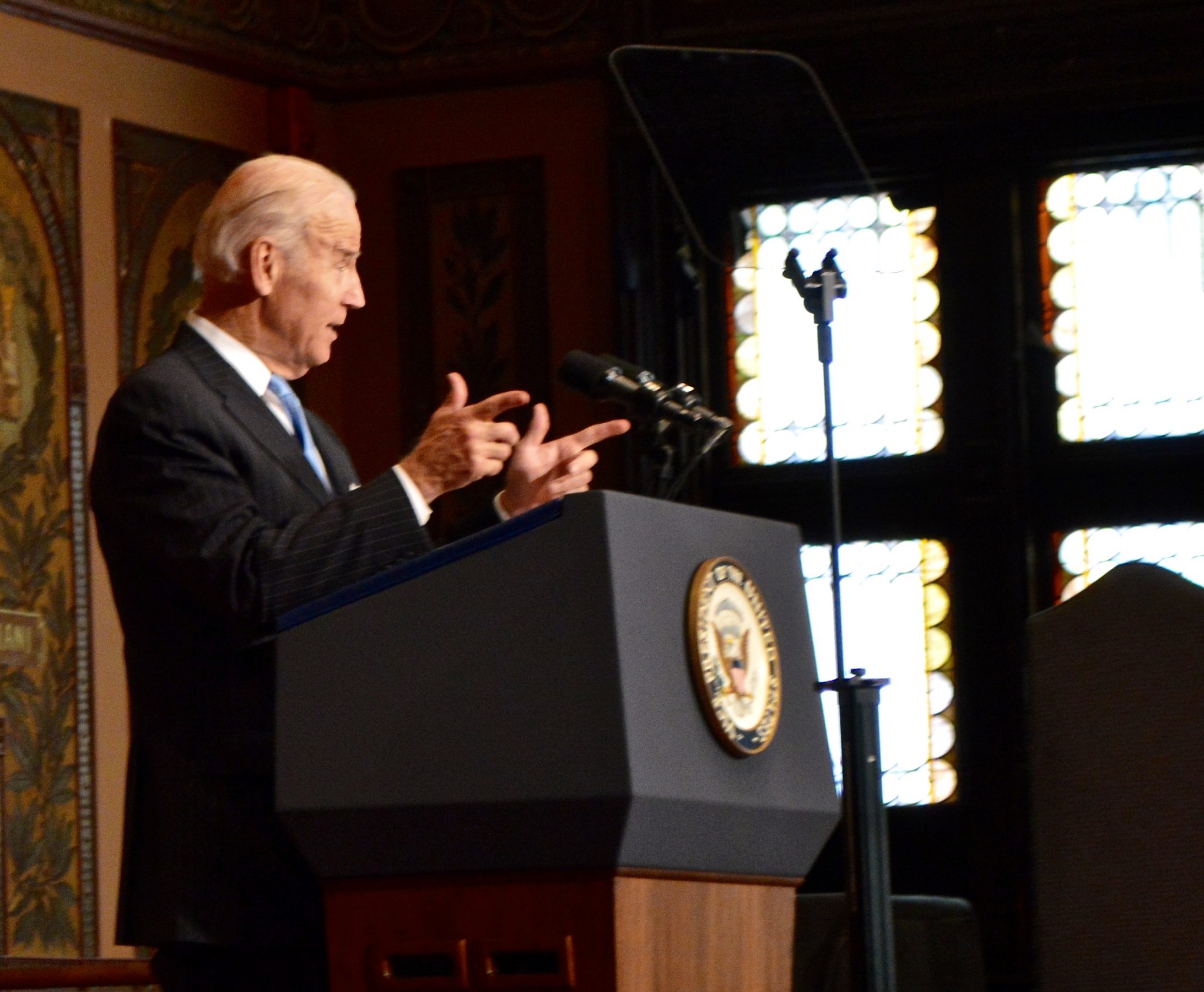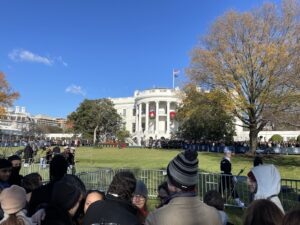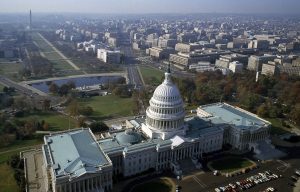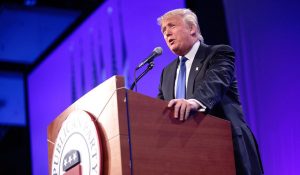In under one week, the general election’s final ballots will have been cast.
The day is anticipated by millions of Americans on both sides of the political spectrum, but for the many students working on the campaign trail this fall, the election represents something greater. It’s the culmination of months spent researching, strategizing, and advocating amid one of the most contentious election cycles in recent memory.
Georgetown’s student body has never been a stranger to political activity, and this election cycle has been no different. The hotly contested Democratic primary contest earlier this year saw a boom of student organizations supporting various candidates, complete with debate watch parties and a mock caucus event. Twelve candidates visited Gaston Hall last September during a televised climate forum co-sponsored by Georgetown’s Institute of Politics, Our Daily Planet, New York Magazine, and MSNBC. And, just recently, over 200 students signed a petition calling for remote classes to be canceled on Election Day to make it easier for students to vote. With classes this fall being moved online because of the COVID-19 pandemic, some undergraduates joined political campaigns either alongside or in replacement of their courses. As the election draws ever closer, those students are feeling increasingly more excitement and anxiety with every passing day.
“I’m trying not to ride the poller-coaster—it’s been a very stressful cycle” said Aida Ross (SFS ’22), who works remotely on communications for the Biden campaign in Arizona. “But I am hopeful. We’ve been doing really awesome work reaching out to people, and I’m cautiously optimistic.”
Ross took the semester off from classes in order to work full-time for the Biden campaign. As a member of the state team’s communications department, she’s been tracking news stories, doing research on reporters, and even responding live on the campaign’s social media during this year’s presidential debates. She, like many young people in the party, attributed her current involvement in part to the outcome in 2016.
“The long and short of it is that this election matters a lot to me. The first time I voted was for Hillary in 2016, so it was really devastating when she lost. I wanted to do something more this election. I think I’ve become a lot more politically engaged and informed since I last voted. So I wanted to help out, make a difference, and get Donald Trump out of office,” she said.
Her mix of stress, caution, and optimism was echoed by Kelvia Jaupi (COL ’22), an intern for Republican challenger John James in Michigan. For Jaupi, the gravity and uncertainty in her race is constant.
“We’re unpaid interns. We’re doing this because we think it’s an important race,” she said. “I have zero clue how I think anything is going to go.”
James’s contest against Democratic incumbent Sen. Gary Peters is one of the few surprise pickups Republicans are hoping for this November. While polls generally show Peters ahead, some individual measures have estimated James to be within a point of the one-term incumbent—even as Biden’s own lead in the state remains comfortable.
“[In the Senate election] I would say there’s probably a bigger voter base that is more moderate and more willing to change their minds depending on what they hear,” Jaupi described. “We’ve had a good amount of people in our conference calls every week that say they’re Biden supporters but they’re going to be voting for John James.”
Regardless of the outcome of either race, both students made it clear: the campaign trail is non-stop. As the election grew closer, Ross described working for as many as 12 to 14 hours each day. Jaupi, though not a full-time employee, characterized her peers’ work as tireless.
“It’s so much more than you would expect, because there’s so many people working behind the scenes day and night. The news doesn’t just stop when you go to sleep, there is stuff happening 24/7,” Jaupi said.
Even in the midst of such a turbulent year, however, Ross emphasized one point above all others: engagement is key. She pointed to this year’s earlier protests against racial injustice and police brutality as an example of how political movements, whether online or out in the world, are crucial for voter education and moving the national focus toward tangible, large-scale social issues. “You get those personal stories on Twitter that you might not get on The New York Times front page,” she said. “You’re getting stories about people being personally affected by police brutality at protests, people posting about their experiences.”
Learning about those online dynamics, especially as a remote staffer, has been vital. While the COVID-19 pandemic has made traditional outreach a much more complicated endeavor, Ross believes the shift online also provides an opportunity for new voices to enter the conversation. She urged students to take advantage of those new channels and get involved, however they can.
“Engaging with politics doesn’t necessarily have to be reading the polls, or keeping up with what political scientists are saying or pundits are saying. It can be as small as just scrolling through your timeline, seeing what things people are talking about and their experiences, and thinking about whether or not that’s something you want to change,” Ross said. “And there’s going to be something you want to change.”





